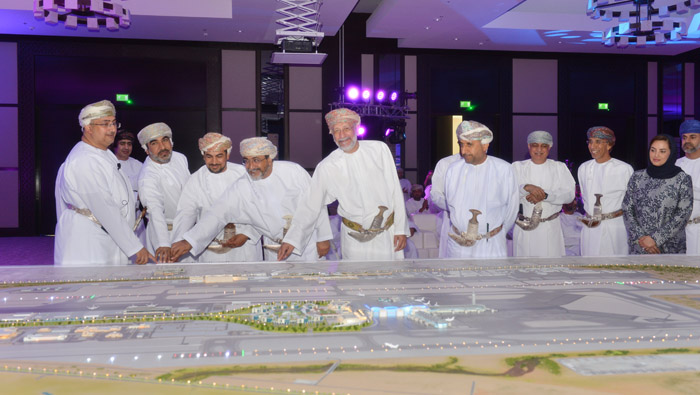
Muscat: As part of the National Aviation Strategy 2030, the Oman Aviation Group is adopting a master plan to launch Muscat Airport City.
The plan aims to achieve the highest levels of utilisation of the new airport’s high capacity and increasing air traffic. It also takes advantage of the land areas surrounding the airport to create a stimulating environment for the establishment of aviation-related projects.
Mustafa Al Hinai, Group CEO, Oman Aviation Group, said, “The city is meant for Oman’s future generations because the development will take over 20 years, and these 20 years require critical planning, dedication, specific teams, knowledge, credibility and accreditation for it to become one of the recognised international cities in the region.
“Both the national travel operator and the airport city will be separate entities under Oman Aviation Group but they are light in nature. We expect most of the investment from the private sector and international investors who will serve as anchor investors.
“The group will invest a minimum to ensure that the blueprints of the city are there in place and try to make sure that the required main utilities are available. We have signed an international partnership and we will announce this at a later stage along with other international agreements that we will have.”
The Muscat Airport Free Zone, which occupies an area of 3.3 million square metres, is devoted to light industries and storage activities for air freight, e-commerce, manufacturing and packaging of national products, in addition to aviation equipment, office spaces, an integrated service delivery station and public facilities which are available to serve the users of the airport.
The Muscat Airport City will consist of a hospitality portal, logistics and a business portal among others. The airport will also have a 200,000 square metres logistics portal, an area designated for air freight services and logistics, which includes the air freight building at Muscat Airport.
The business portal, which is a mixed-use project in an area of more than 1.1 million square metres, will have spaces designated for the office units of airlines and related economic sectors.
The airport city will also feature an aviation portal, which includes the passengers’ terminal area and the location of the previous air freight buildings in an area of 166,000 square metres.
This portal will host aviation, cultural and social activities, innovation centres for the aviation sector and a specialised emergency hospital serving the sector in accordance with global aviation safety regulations, and supporting social services.
The hospitality portal, which occupies an area of 192,000 square metres, will include hospitality, duty-free shops, offices for travel companies, and hotels for travellers or short-term visitors.
The project is being developed in cooperation with the national economic sectors that contributed to the building of the aviation sector ecosystem during the previous era, and through new investments. It will be assigned to the private sector and SMEs.